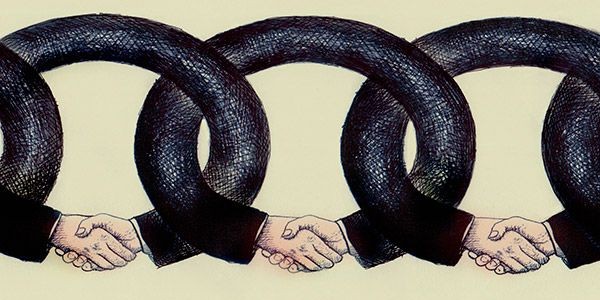A recent study by two Canadian business schools into what causes inflated executive pay upends some of the conventional wisdom about what causes executive salaries to increase over time.
For one, it’s not caused by CEOs explicitly colluding with their peers who sit on their company’s compensation committees. Nor is it solely dictated by objective performance metrics.
In the study, titled You scratch his back, he scratches mine and I’ll scratch yours: Deception in simultaneous cyclic networks, researchers from the Rotman School of Management and the Ted Rogers School of Management found inflated pay was actually caused by something they’ve labeled the “indirect reciprocity effect”— an unwritten code that can pervade c-suites.
An executive’s opinion on what the base salary ought to be for another CEO is coloured by what they believe they themselves are worth. They hope that, when it comes time for their peers to judge their worth, they will return the favour. And because executives are invited to sit on the compensation committees of other companies, it often works out this way—even if they don’t have a personal relationship with the CEO they’re evaluating.
The researchers say it’s important to study how CEO networks function, since they often result in negative externalities (the costs suffered by a third party as a result of a financial or economic transaction).
“The CEO network could reduce the welfare of shareholders and contribute to the widening social inequality. It is certainly possible the unethical favours at the expense of of a third party might just be construed as the cost of gifts in the eyes of the giver and the receiver and hence become indistinguishable from other forms of self-interest.”
This story originally appeared at CanadianBusiness.com.











